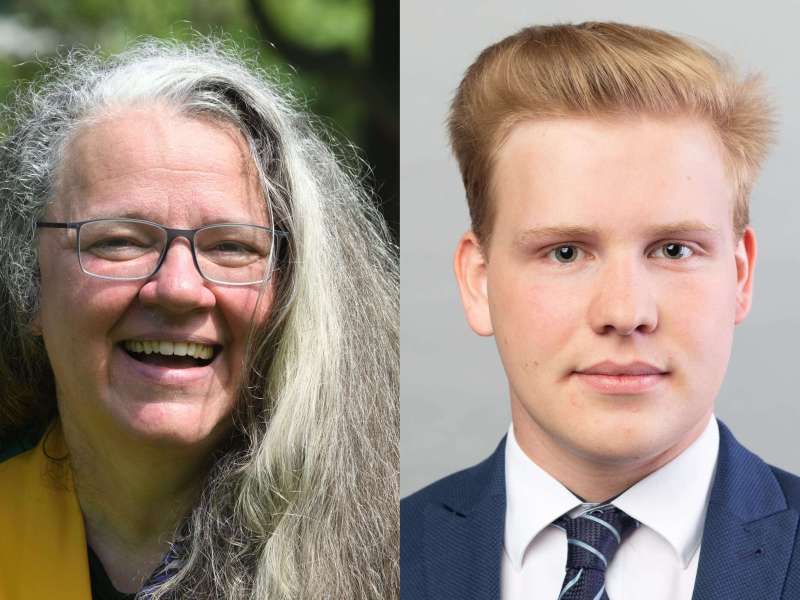Today, the Wikimedia Foundation Board of Trustees voted to ratify new trust and safety standards for Wikipedia and all other Wikimedia projects. The standards, as outlined in a new Community Culture Statement, provide direction and priority to address harassment and incivility within the Wikimedia movement and create welcoming, inclusive, harassment-free spaces in which people can contribute productively and debate constructively.
Specifically, the Board has tasked the Foundation with:
- Developing and introducing, in close consultation with volunteer contributor communities, a universal code of conduct that will be a binding minimum set of standards across all Wikimedia projects;
- Taking actions to ban, sanction, or otherwise limit the access of Wikimedia movement participants who do not comply with these policies and the Terms of Use;
- Working with community functionaries to create and refine a retroactive review process for cases brought by involved parties, excluding those cases which pose legal or other severe risks; and
- Significantly increasing support for and collaboration with community functionaries primarily enforcing such compliance in a way that prioritizes the personal safety of these functionaries.
The Board’s statement formalizes years’ of longstanding efforts by individual volunteers, Wikimedia affiliates, Foundation staff, and others to stop harassment and promote inclusivity on Wikimedia projects.
Please see the Board’s Community Culture Statement below and on Meta-Wiki.
Statement on Healthy Community Culture, Inclusivity, and Safe Spaces
Harassment, toxic behavior, and incivility in the Wikimedia movement are contrary to our shared values and detrimental to our vision and mission. They negatively impact our ability to collect, share, and disseminate free knowledge, harm the immediate well-being of individual Wikimedians, and threaten the long-term health and success of the Wikimedia projects. The Board does not believe we have made enough progress toward creating welcoming, inclusive, harassment-free spaces in which people can contribute productively and debate constructively.
In recognition of the urgency of these issues, the Board is directing the Wikimedia Foundation to directly improve the situation in collaboration with our communities. This should include developing sustainable practices and tools that eliminate harassment, toxicity, and incivility, promote inclusivity, cultivate respectful discourse, reduce harms to participants, protect the projects from disinformation and bad actors, and promote trust in our projects.
Specifically, the Foundation shall:
- Develop and introduce a universal code of conduct (UCoC) that will be a binding minimum set of standards across all Wikimedia projects.
- The first phase, covering policies for in-person and virtual events, technical spaces, and all Wikimedia projects and wikis, and developed in collaboration with the international Wikimedia communities, will be presented to the Board for ratification by August 30, 2020.
- The second phase, outlining clear enforcement pathways, and refined with broad input from the Wikimedia communities, will be presented to the Board for ratification by the end of 2020;
- Take actions to ban, sanction, or otherwise limit the access of Wikimedia movement participants who do not comply with these policies and the Terms of Use;
- Work with community functionaries to create and refine a retroactive review process for cases brought by involved parties, excluding those cases which pose legal or other severe risks; and
- Significantly increase support for and collaboration with community functionaries primarily enforcing such compliance in a way that prioritizes the personal safety of these functionaries.
Until such directives are implemented, the Board instructs the Foundation to adopt and implement policies for reducing harassment and toxicity on our projects and minimizing legal risks for the movement, in collaboration with communities whenever practicable. Until these two phases of the UCoC are complete and operational an interim review process involving community functionaries will be in effect. In this interim period, the Product Committee of the Board of Trustees will also advise the Trust & Safety team.
To that end, the Board further directs the Foundation, in collaboration with the communities, to make additional investments in Trust & Safety capacity, including but not limited to: development of tools needed to assist our volunteers and staff, research to support data-informed decisions, development of clear metrics to measure success, development of training tools and materials (including building communities’ capacities around harassment awareness and conflict resolution), and consultations with international experts on harassment, community health and children’s rights, as well as additional hiring.
The above efforts will be undertaken in coordination and collaboration with appropriate partners from across the movement, seek to increase effective community governance of conduct and behavioral standards, and reduce the long-term need of the Foundation to act. It is the shared goal of the Board and Foundation that these efforts advance a sustainable Wikimedia movement and support, rather than substitute, effective models of community governance.
We urge every member of the Wikimedia communities to collaborate in a way that models the Wikimedia values of openness and inclusivity, step forward to do their part to create a safe and welcoming culture for all, stop hostile and toxic behavior, support people who have been targeted by such behavior, assist good-faith people learning to contribute, and help set clear expectations for all contributors.




